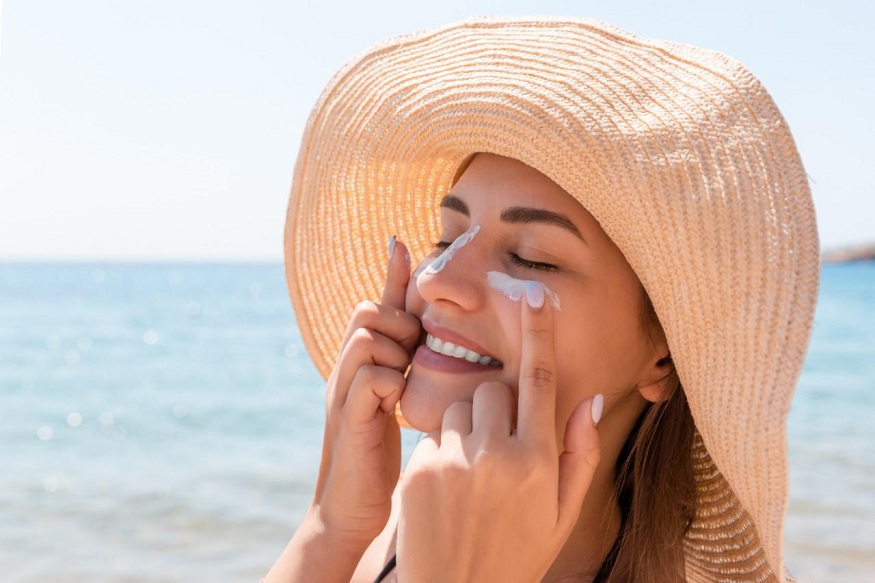You have probably heard of how important it is to put on sunscreen during summer and winter alike in order to protect your skin from ultraviolet rays. But have you ever wondered how sunscreen came about altogether?
The origin of sunscreen goes back to the ancient Egyptian traditions as rice bran extract and jasmine were used to help protect the skin from the sun. But the first commercial product for protection against the sun was produced in 1936 by chemists, and it has been enhanced ever since over the years.
As for nowadays, most sunscreen formulas are waterproof and they are incorporated in foundations, moisturizers, and serums.
But what is the importance of sunscreen?
Getting exposed to sun rays excessively is damaging to the skin both at surface level and on a deeper one. So, it is essential to wear sunscreen all year around, even during winter, as part of your skincare routine.
Sunscreen is not only beneficial when it comes to protecting your skin against sun burns, which it is mostly known for, but it also holds other benefits that you do not want to miss out on. Keep on reading to discover 5 benefits of wearing sunscreen for dry skin, oily skin, and all other skin types.
Protection Against Sun Burns
Sunscreen protects your skin from getting sunburned, which happens when you spend lengthy amounts of time under the sun without sunscreen. Getting sunburned constantly can lead to further damage to your skin such as wrinkles, and it can cause skin cancer in extreme cases. So, make sure to always wear sunscreen to prevent sun rays from damaging the deeper layers of your skin.
Anti-Aging
It is recommended to use sunscreen in order to minimize anti-aging signs that might appear on your skin earlier than expected if you do not use sunscreen.
Studies have shown that people who use the right amount of sunscreen regularly are less likely to show signs of early aging compared to those who don’t by 20%.
Skin aging signs are fine lines, skin roughness as well as spots and skin pigmentation, which are all minimized thanks to sunscreen.
Minimizing the Risk of Getting Skin Cancer
Studies have shown that most skin cancer types are closely associated with getting exposed to the sun directly, and that wearing sunscreen properly is essential to protecting the skin from direct and excessive exposure to the sun.
If you commit to putting on sunscreen, your risk of getting actinic keratosis, squamous cell carcinoma, which is the second most common type of skin cancer, and melanoma (or malignant melanoma), which is the most dangerous type of skin cancer, is reduced significantly.
Protection Against Skin Pigmentation
Women are of a higher risk of getting skin pigmentation, especially those of a fairer skin color. It is worth noting that ultraviolet rays reduce skin elasticity and damage the top layer of the skin, which causes pigment to build up, skin to wrinkle and droop, and eventually cause brown spots.
To avoid this, make sure to apply sunscreen to prevent dark spots, red “spider” veins, and acne from appearing on your face.
Reducing Irritability and Allergies
Sunscreen reduces the risk of skin irritation and allergies, especially for those struggling with skin disease such as psoriasis and rosacea.
If your skin is sensitive and is prone to redness, use a sunscreen that consists of gentle ingredients such as Zinc Oxide and Titanium Dioxide, and avoid sunscreens sprays since they consist of harmful alcoholic ingredients that dry out your skin.

